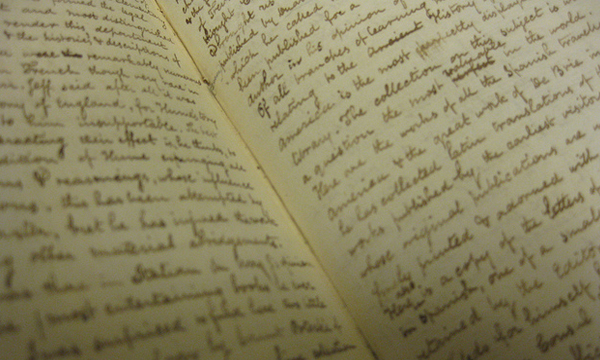
Date: Wednesday, November 20
Time: 1:00-2:00 p.m.
Location: Perkins Library, Room 217 (Click for map)
Contact: Joshua Sosin, joshua.sosin@duke.edu, or 919-681-2992
This event is free and open to the public.
One of the most popular applications of crowdsourcing to cultural heritage is transcription. Since OCR software doesn’t recognize handwriting, human volunteers are converting letters, diaries, and log books into formats that can be read, mined, searched, and used to improve collection metadata. But cultural heritage institutions aren’t the only organizations working with handwritten material, and many innovations are happening within investigative journalism, citizen science, and genealogy.
This talk will present an overview of the landscape of crowdsourced transcription: where it came from, who’s doing it, and the kinds of contributions their volunteers make, followed by a discussion of motivation, participation, recruitment, and quality controls.
About the Speaker
Ben Brumfield earned his B.A. in Computer Science and Linguistics from Rice University in 1997. He has seventeen years experience as a professional software engineer, including a dozen years building software for non-profit organizations, from libraries to genealogical organizations. In 2005, he began developing FromThePage, a collaborative transcription platform. He has spoken on crowdsourcing and collaborative manuscript transcription at the American Historical Association, Museum Computer Network, IMLS WebWise, Text Encoding Initiative, and Digital Humanities conferences,in the United States, Canada, and Europe.
Sponsored by the Duke Collaboratory for Classics Computing.

